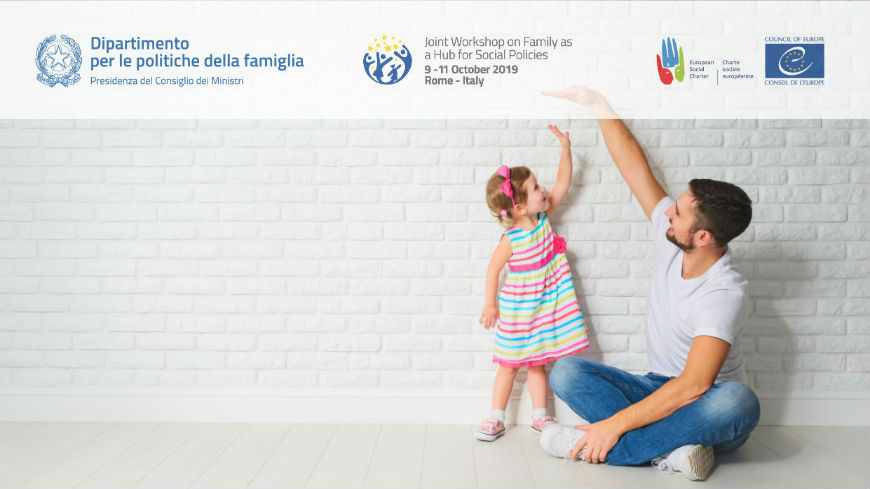The Deputy Secretary General Gabriella Battaini-Dragoni will open together with the Italian Minister for Equal Opportunities and Family, Elena Bonetti the Joint Workshop on family as a hub for social policies. The event is organised by the Department for Family Policies of the Italian Presidency of the Council of Ministers and the European Social Cohesion Platform (PECS) of the Council of Europe and will take place in Rome on 9 and 10 October.
The joint workshop will be focused on the main social topics having an impact on both women and men, especially on working mothers and fathers and their children and it is divided into 4 working sessions:
- Work-life balance and company welfare;
- Family measures to promote the increase in the birth-rate in Europe;
- Support services for children witnessing violence and children orphaned by domestic crimes;
- Eradication of child poverty.
Opening remarks will also be addressed by the Minister of Labour and Social Affairs of Armenia, Zaruhi Batoyan; by the Minister of Social Security and Labour of Lithuania, Linas Kukuraitis and by the Minister for the Family, Children’s Rights, and Social Solidarity of Malta, Michael Falzon.
The joint workshop will be followed by the 4th meeting of the European Social Cohesion Platform*. The Platform will exchange views on the draft work plan for 2020-2021 and make proposals for future activities, it will examine the draft Declaration of the Council of Europe Committee of Ministers on Addressing Child Poverty, as well as the draft Council of Europe Revised Strategy (2020-2021) on social cohesions. In addition, the Platform will hold a discussion on the Report on Middle Class and Social Cohesion that will be presented by Prof. Paolo Graziano, the author.
* The objective of the European Social Cohesion Platform is to reinforce the intergovernmental component of the Secretary General’s strategy to enhance the Council of Europe’s work in the area of social cohesion, in particular through the promotion of the European Social Charter and its collective complaints procedure in order to ensure equal and effective access to social rights.
- Opening address by Gabriella Battaini-Dragoni, Deputy Secretary General of the Council of Europe
- Agenda Joint Workshop on family as a hub for social policies
- Agenda 4th meeting of the European Social Cohesion Platform




